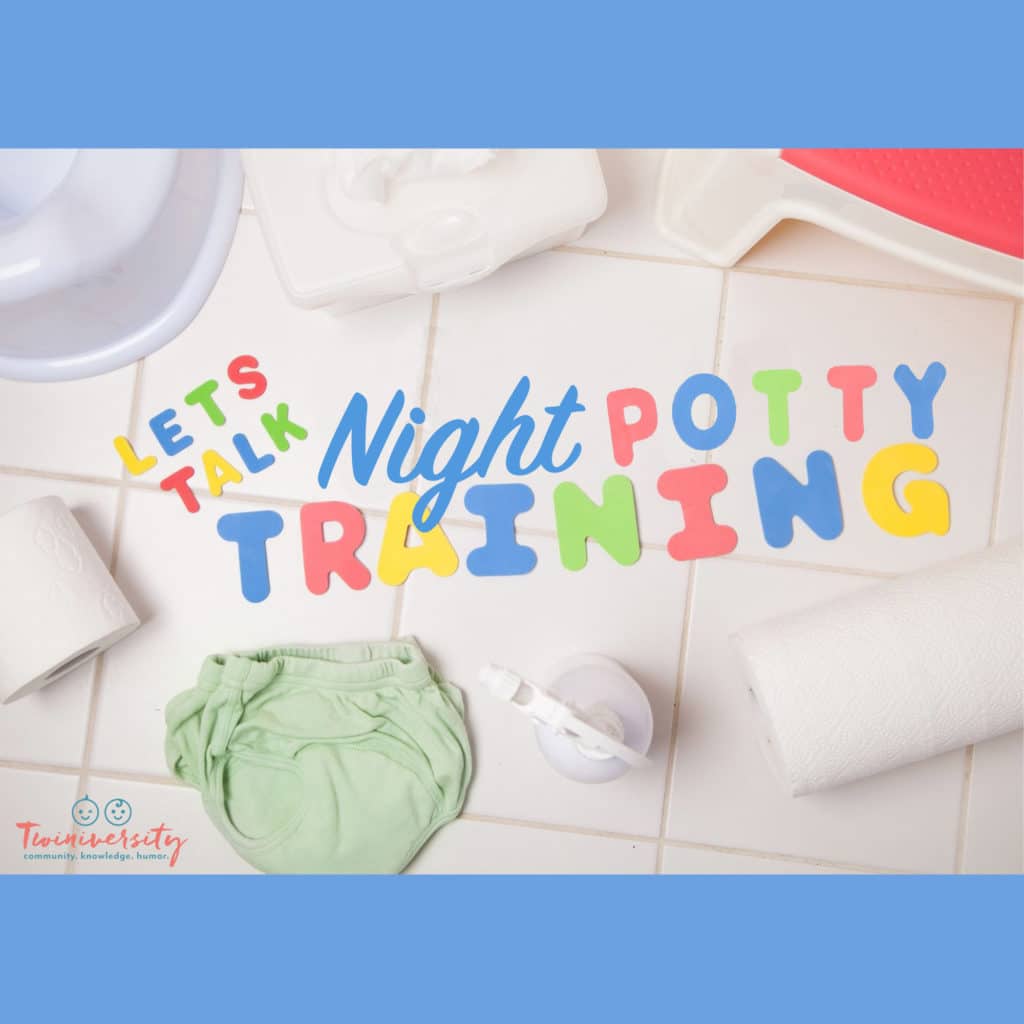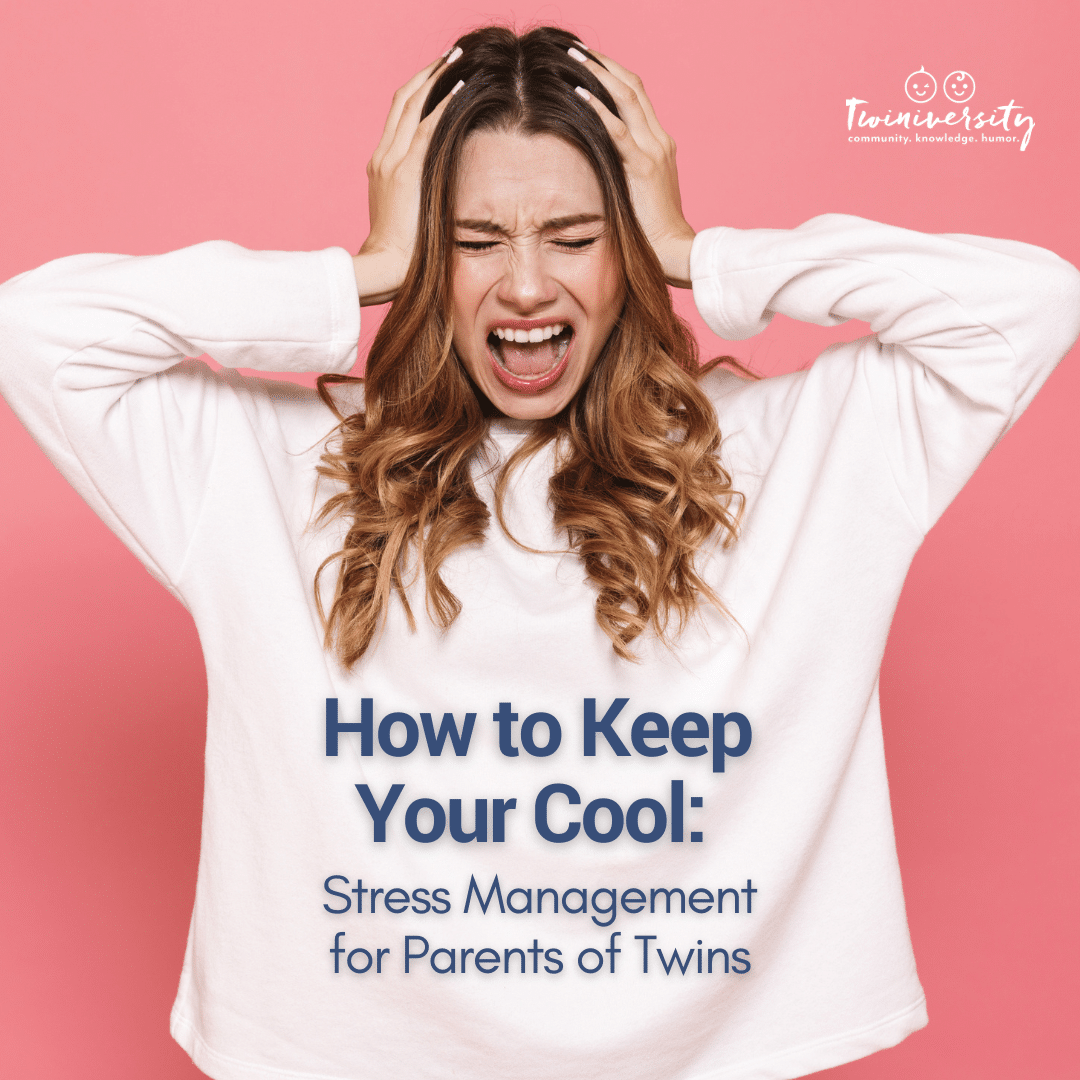Last updated on February 5th, 2024 at 03:13 pm
After 7 months of potty training twins (we took a 3-month sabbatical in the middle for a little reflection and mommy’s sanity), they are finally going boom-boom and wee-wee on the potty. Accidents are few and far between and I feel like we are really starting to live our best life! Did I forget to mention that they are only day potty trained? How do you even go about night potty training?
Do I cut off all liquids hours before bed? Should I wake them up in the middle of the night and set them on the toilet? Should they wear underwear only? Are Pull-Ups okay? Do I need to worry if my twins are 4 years old and still wetting the bed at night?
I am a mom in the dark on this one. Potty training my singleton was like a potty training fairytale: beautiful princess, stunning nightgown, her own personal porcelain throne, and clean, dry undies in the morning. She was potty trained at 2 ½ years old. She slept in a nighttime diaper for three weeks and never once had a wet diaper in the morning. Still to this day she has only had TWO accidents. EVER! I knew right away this potty training experience was the exception, not the rule.
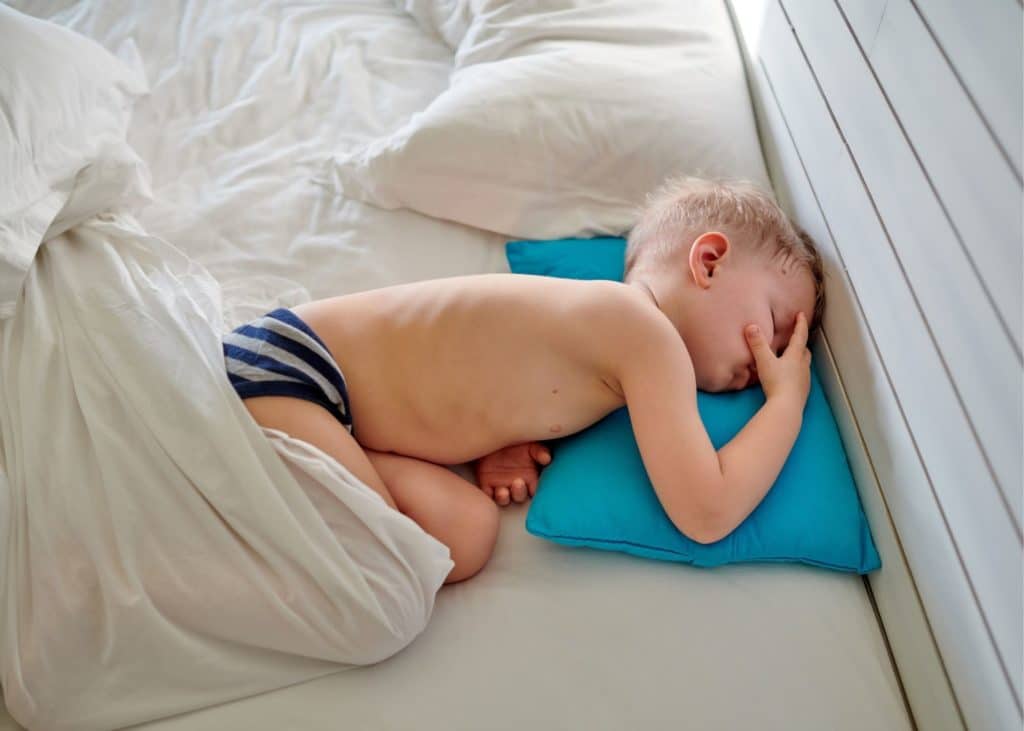
I was surprised by the fact that potty training my twins was hard, exhausting, and yet humbling. Because of my experience with potty training, I thought once your child did one, they automatically did the other. I can’t be the only mom to think this, and I needed some guidance. It surprised me to learn that night potty training and daytime potty training rarely happen at the same time. So, what can I do to potty train my twins at night?
Absolutely Nothing!
You can’t teach someone to do something while unconscious. According to Potty Training Expert and Twiniversity Membership guest speaker, Alexis Granelli, night potty training is hormonal not behavioral. What does this mean? “Withholding one’s pee during the night happens when one’s body is ready for it to happen”, says Granelli. So basically, no amount of pressure or convincing or even praise is going to make your child have a dry diaper in the morning until their body has figured out how to hold the pee in.
Want to be the first to know about giveaways, deals, and more just for twin parents? Sign up for the Twiniversity email list! Subscribe today to get emails about giveaways, events, weekly article roundups, and more! Pregnant with twins? We’ll be sending you a weekly twin pregnancy email to keep you on track with your pregnancy to-do list! Click here to learn more… and while you’re at it, check out our Complete Baby Safety Course and Twin Parent Memberships.
Although there isn’t a to-do list for night potty training, there is a NOT-TO-DO list:
Waking the Child at Night
This is the most common mistake. By waking your child up to go to the toilet, they don’t develop the bladder-brain communication they need to stay dry at night. You are effectively taking away your child’s control of their bladder. Because of this, your child’s brain and bladder have no reason to build communication, so waking your child to pee just prolongs the bedwetting.
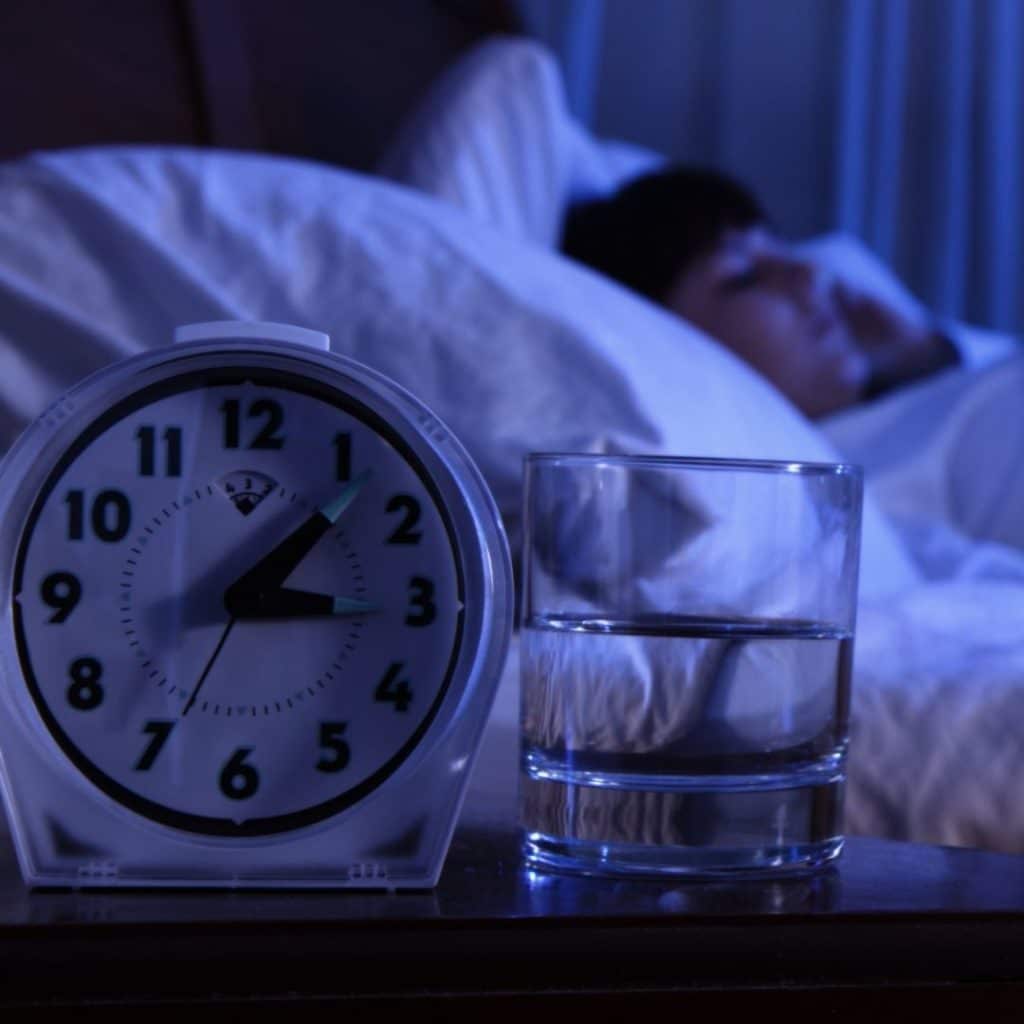
Restricting Fluids
Restricting fluids before sleep seems like a logical step in encouraging night dryness. Don’t do it. Is it a good idea to give your kids a 16 oz glass of milk before? No. But it is also not a good idea to restrict your child from drinking anything before bed. Restriction of fluids is unhealthy for children and can be counterproductive in helping them recognize the sensation of full bladder and developing control.
Using Pull-Ups
Pull-Ups or potty training pants are made to wick moisture away from the skin. Little kids generally do not feel wet when they pee in disposable potty training pants. We want our child to know when they are wet. Wet pants are uncomfortable, dry pants feel nice. If your child can’t feel when they go pee in their Pull-Up, there is no motivation to stop.
Punishment
When your child pees during sleep, it is done unconsciously and not on purpose. When you punish your child, you are punishing them for something which is not their fault. Punishment insinuates that your child is not making an effort or is wetting the bed on purpose and oftentimes builds negative self-esteem in your child.
Bedwetting is common , so don’t get discouraged yet! 1 in 6 kids between the ages of 3 and 12 experience bedwetting, with twice as many boys wetting their beds as girls. According to www.webmd.com, after age 5 about 15% of children continue to wet the bed, and by age 10, 95% of children are dry at night.
Need some twin parent friends? Get the support you need with a Twiniversity Membership. Benefits include a monthly twin parent club meeting on Zoom, access to a private Facebook group just for twin parents, and a video library of twin parenting lessons. Visit Twiniversity.com/membership to join today!
Can We Encourage Our Children to Get up and Potty at Night?
“Potty training is more about being capable and less about being ready,” says Granelli, “don’t worry about night training and just focus on day training”.
Here are some tips and tricks to encourage your child to stay dry all night long:
Have a Daytime Potty Training Plan
Since nighttime potty training stems from daytime training, it’s important to make sure you have your daytime plan in place. Setting up good habits for daytime potty breaks greatly helps during the nighttime hours. The better they are at listening to their bodies and going potty right away instead of waiting, the better they will do at going potty during the night.
Liquid Intake
Granelli says to think of liquid intake in the evening as an upside-down pyramid. Liquids with dinner are at the top, where the pyramid is widest. As the hours get closer to bedtime, you move down the pyramid, decreasing the amount of liquid as you move toward the tip, which signifies bedtime. Ideally, you want to skip the before bed glass of water. However, if they really need it, give them the smallest cup you have in the cupboard.
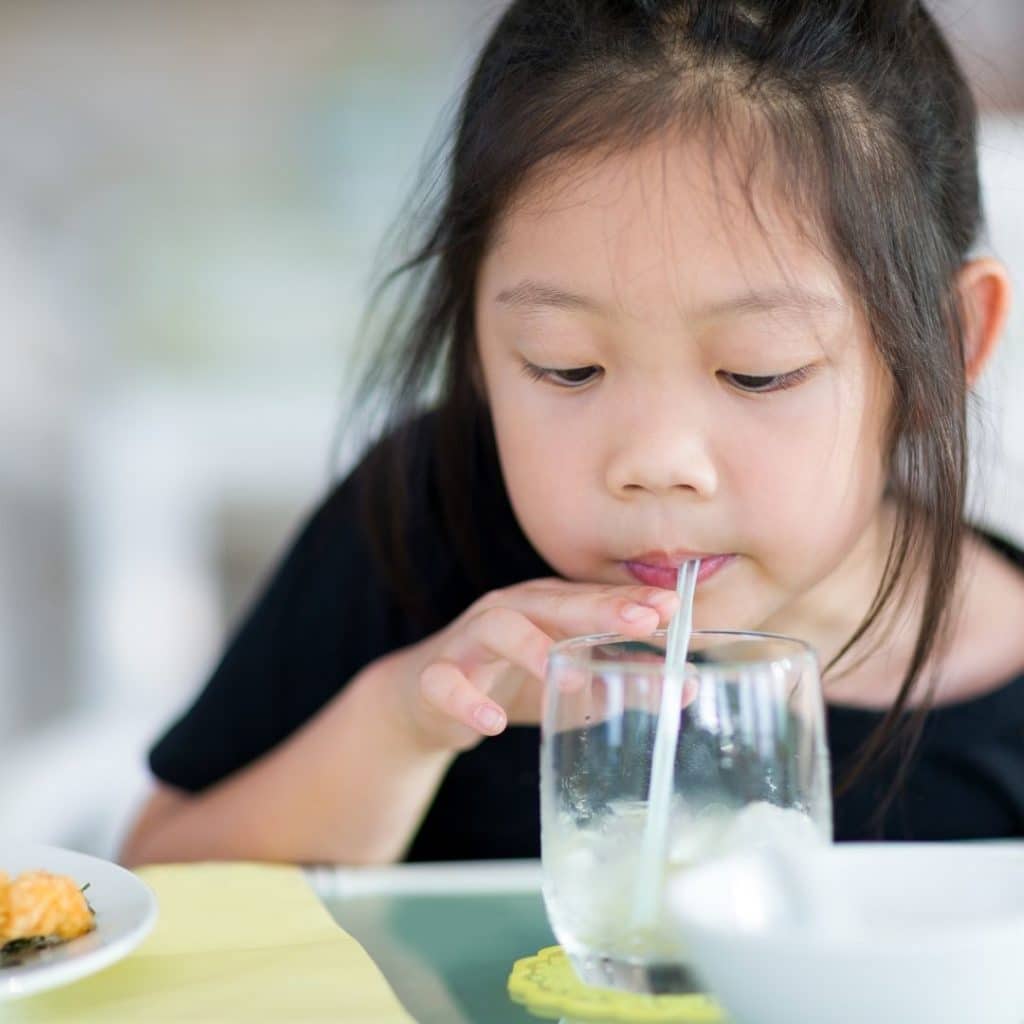
Make a Bedtime Routine
Regardless of where your child is in the potty training obstacle course, it’s a good idea to make sure they go to bed with an empty bladder. Once potty training at night is the goal, it’s important to make going potty a part of the bedtime routine just like brushing teeth. One last potty stop right before bed will maximize your child’s chances of a dry night. “Get them to go before bed, and right when they wake up,” suggests Granelli.
Is Bedwetting Hereditary?
Scientists have located some specific genes that lead to delayed nighttime bladder control (FYI, they are on chromosomes 13, 12, and 8). What this means is, if you wet the bed as a child, there’s a good chance that your children will experience the same. According to the American Academy of Child & Adolescent Psychiatry (AACAP), if one parent wet the bed as a child, 40% of the time their children may have the same problem. If both parents wet the bed as children, then each of their children would have about a 70% chance of having the same problem.
Granelli suggests talking to your pediatrician if your child is 6 years or older and still wetting the bed at night. But keep in mind that less than 3% of bedwetting is related to a medical or psychological problem.
Your child will learn to hold their pee when their body is developed and prepared to do so. TRUST IT. Focus on the day training, creating a routine, and modeling the process for your children. Remember, children naturally gain bladder control at night and they do so at several different ages.
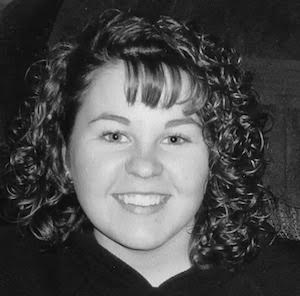
Twiniversity Staff Writer

